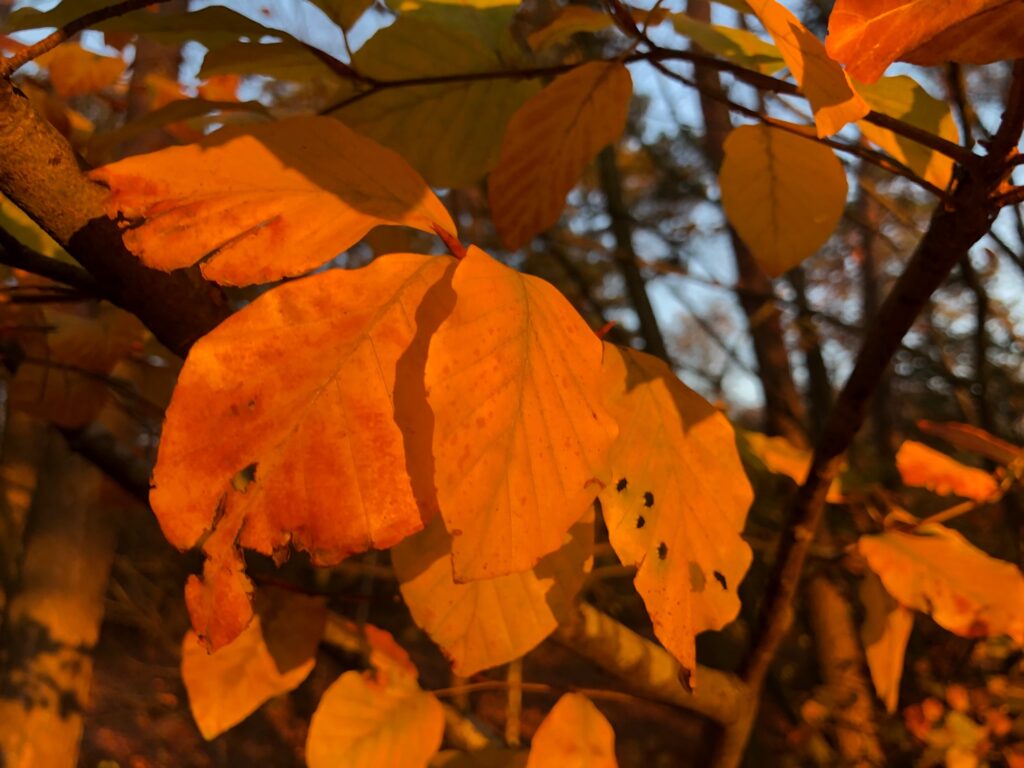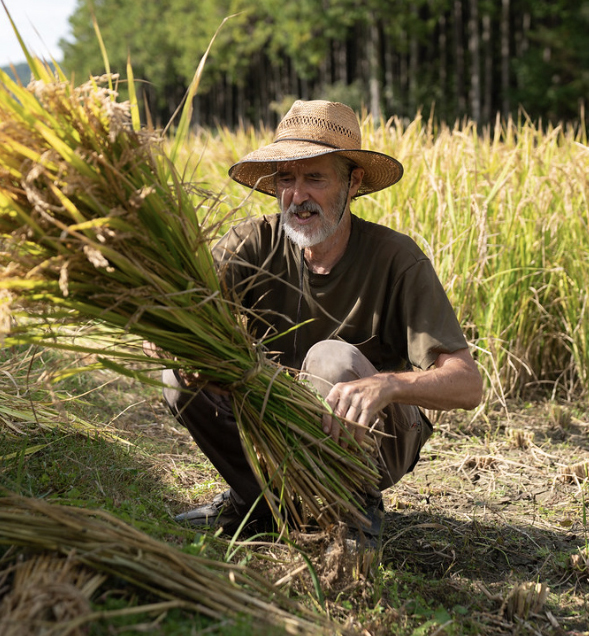by Robert Weis

The most pleasant surprise when I moved to the city from the countryside was to discover that, just five minutes’ walk from my home, there is a wood, hidden and nestled in a small stream valley, miraculously escaped from the frenetic urbanisation that is rampant in these parts. I had often wondered whether it was the right decision to move from the countryside with its majestic forests of Luxembourg’s Little Switzerland to the city, despite the convenience of being so close to my workplace. I was afraid that I would miss the silent strolls after work, where I would refocus on the world, the analogous and primitive one, and not the virtual or sophisticated one in which I moved during most of my day as a good productive Citizen. That day, therefore, when I went under the thick canopy of beech leaves, which were beginning to change colour despite the mildness of this early autumn, I felt reassured: I had found a ‘world that looked like the world’, the one I had left behind for an unknown future. The familiar presence of the beech trees, the constant flow of water and the moss-covered sandstone rocks that emerged here and there made me feel good and showed me that the path I had taken was the right one. The immersion into the natural surroundings reminded me of lessons learnt in Japan, where Shinrin-yoku, or Forest Bathing is an officially recognized therapeutic practice since decades. In the following months the grove became my refuge when I needed to clear my head, to breathe fresh air, to tread on organic soil, to observe the changing seasons: the necessary desolation of the winter grey, the bright fresh green of the first leaves in April, the coolness of the shade and water on sultry summer days, the mushrooms and the colours of the leaves in autumn. The thing that struck me most, however, was to discover that the forest was also the refuge of several squirrels, who often came to the gardens of the houses, where perhaps walnut trees grew. But they would always come back here to the wood, just as me, and I would stop and watch their joyful presence, the rustling in the leaves, a quick movement, a lively look. And it gradually became a ritual, going to the squirrel forest, and I realised that I needed this simplicity of being in the world and breathing and watching my local kami, the spirits of the forests, and nothing else. And the atmosphere of the forest became a metaphor for a space of inner peace, and I began to eventually imagine it in stressful moments even when I couldn’t physically be there. I closed my eyes and it was all there, the colour of the leaves, the movements of the squirrels, the almost imperceptible sound of the water running over the stones. And every time I felt at home, and nothing made me regret the past. So time went by and today it’s been five years that I live near the forest and that the forest lives inside me. And nothing has changed, and nothing will change my world, until the squirrels stop hiding their nuts for the winter, until the nettles stop coming out in March after a long break to end up right in my soup, until the water flows, always unchanged, but never the same.
As long as this world exists, all we need is a squirrel forest for our senses and mind to bathe in.








Recent Comments